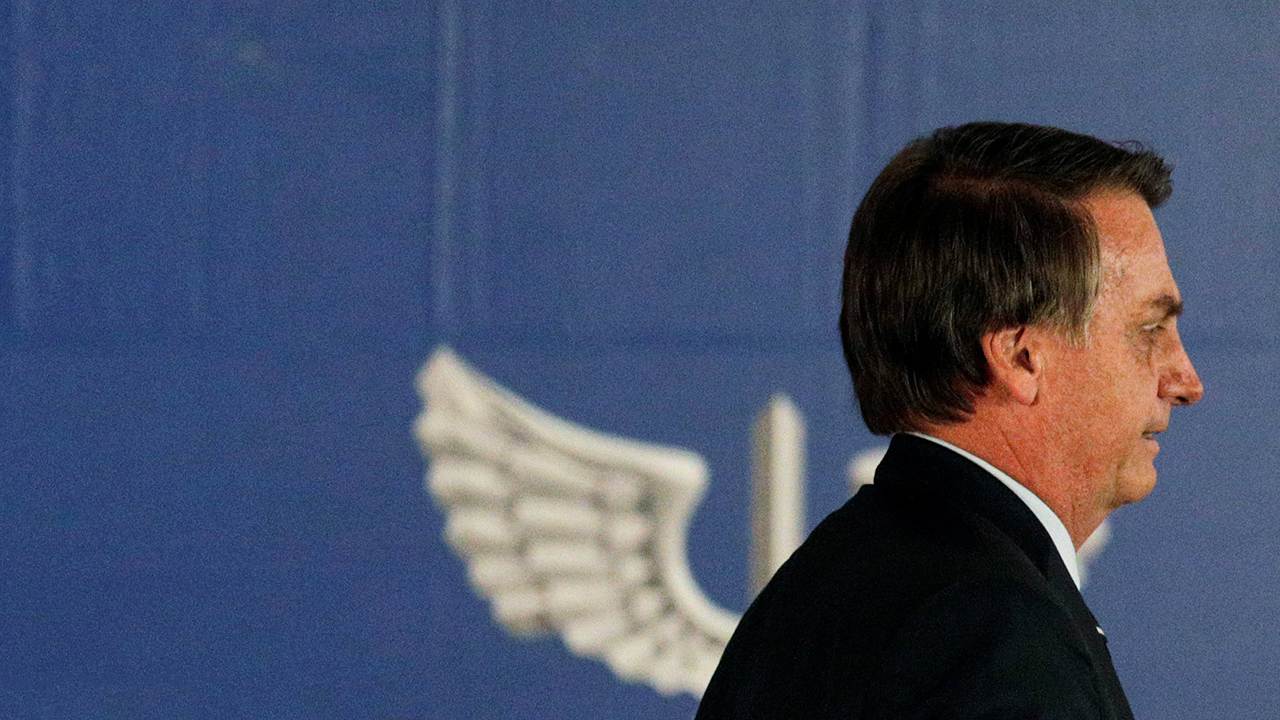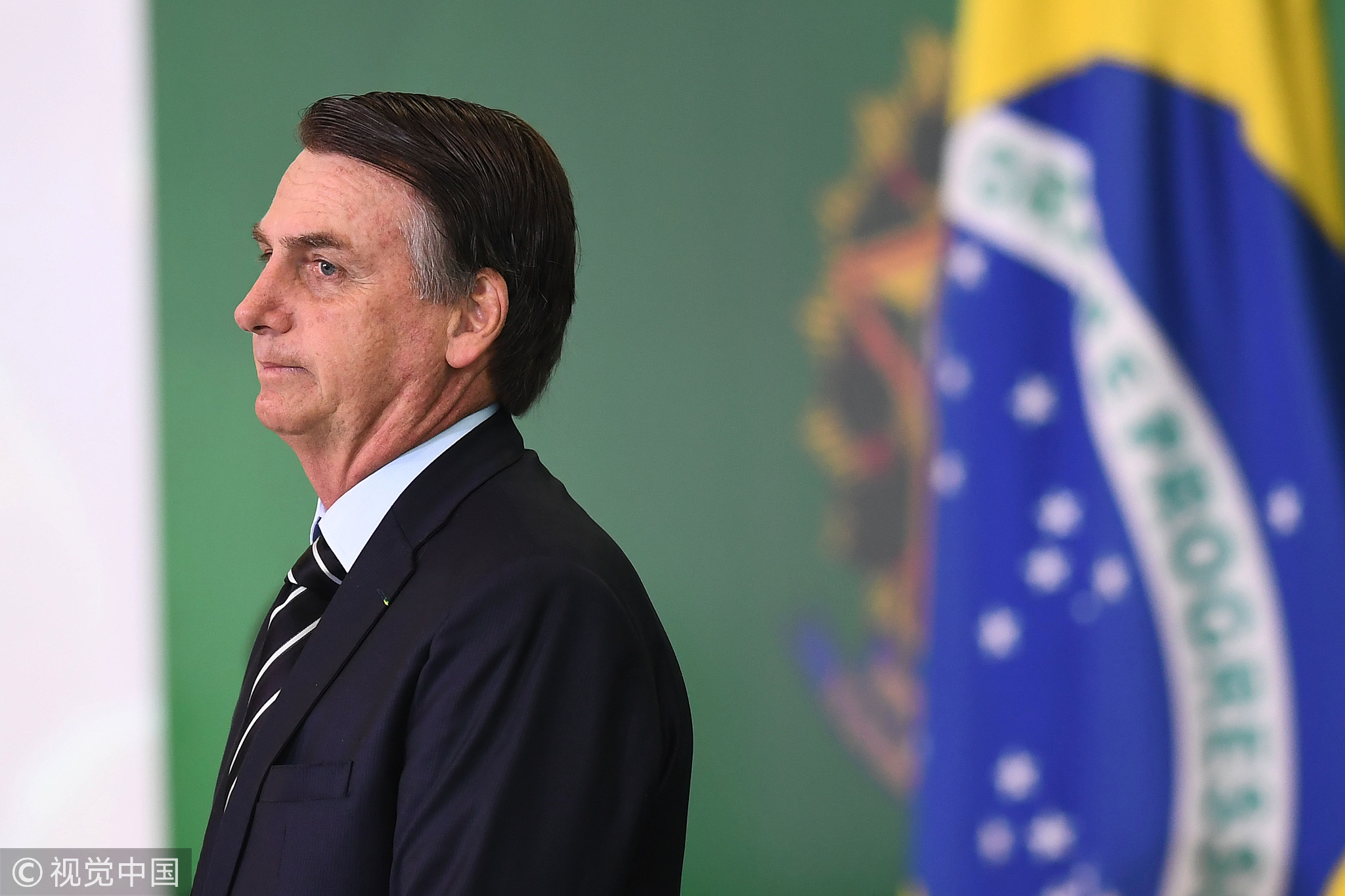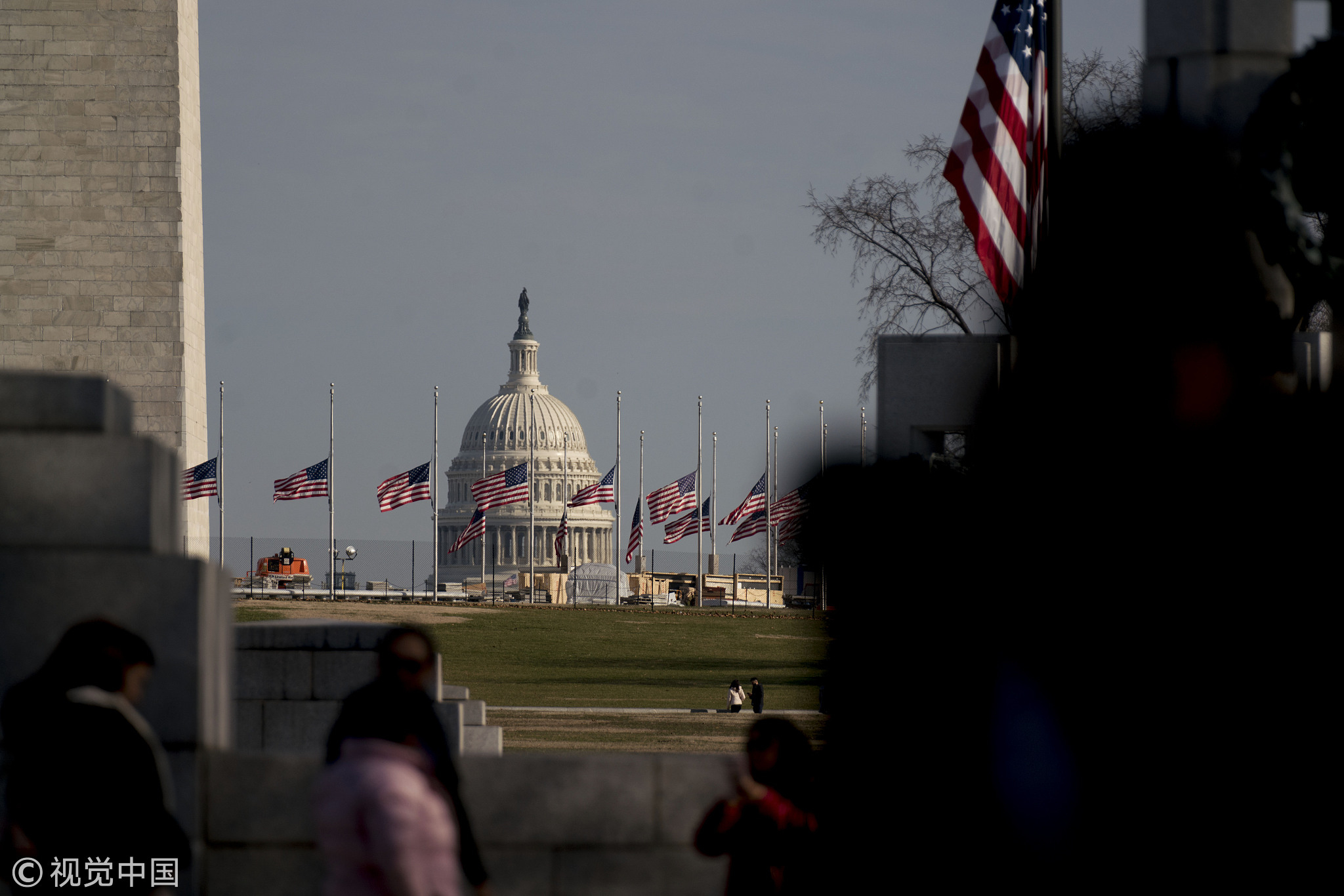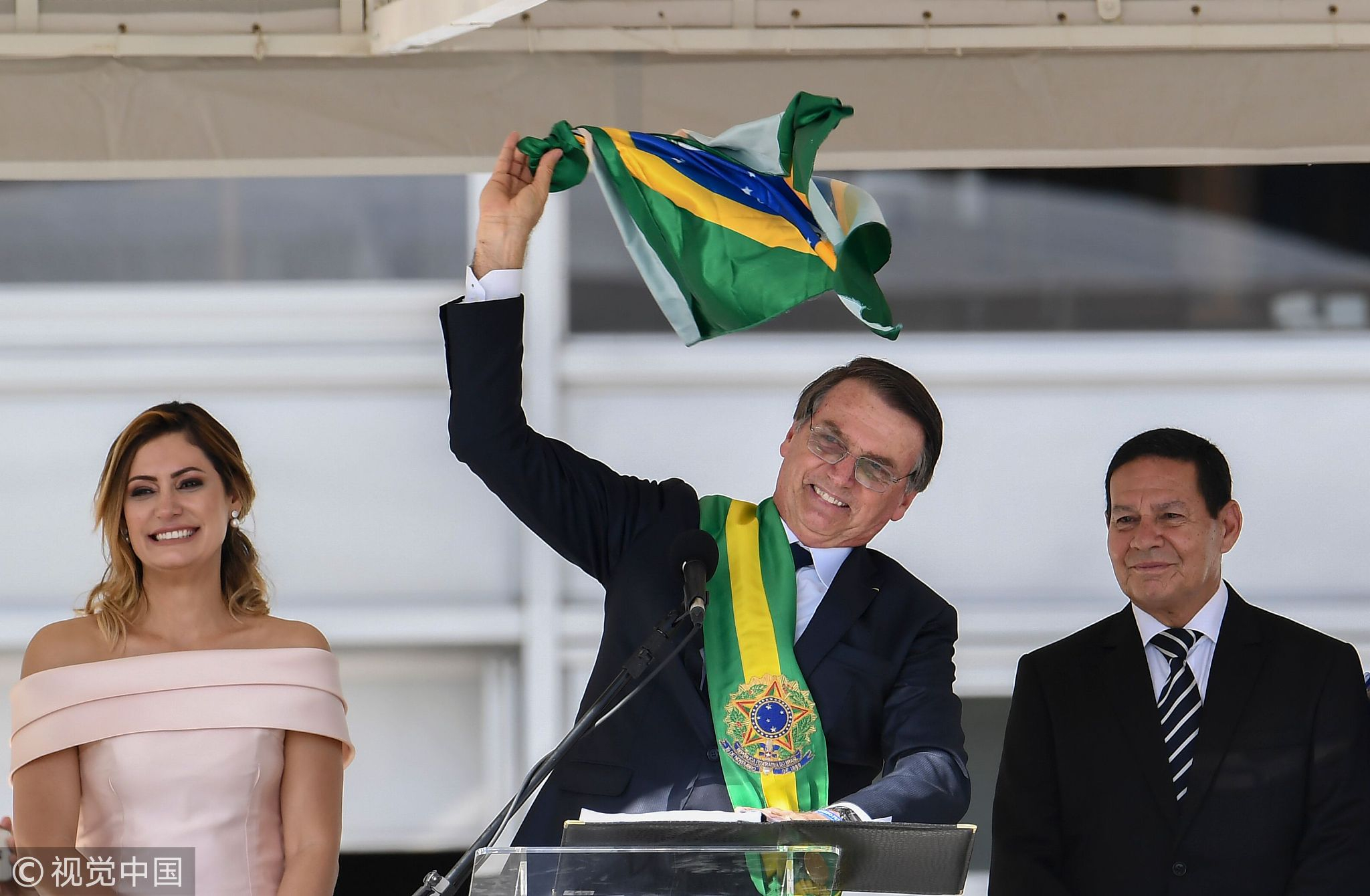
Opinions
21:53, 03-Jan-2019
Opinion: Brazil's Bolsonaro and the decline of the liberal dream
Updated
21:44, 06-Jan-2019
Tom Fowdy

Editor's note: Tom Fowdy is a UK-based political analyst. The article reflects the author's views, and not necessarily those of CGTN.
New Year's Day saw the controversial Brazilian politician Jair Bolsonaro formally inaugurated into office as president of the country. Regarded as the Donald Trump of South America, Bolsonaro advocates a firebrand right-wing nationalism fueled by equally provocative rhetoric.
His ascension to office is no surprise, after years of economic decline, mass protests and high profile corruption scandals at the highest level, mass disillusionment with the country's direction ultimately propelled his rise to power. His populist jibe offered a voice to the lost and the angry.
He cut no corners on his first formal day in office either. Quickly, he initiated a sweeping assault on the land rights of indigenous Amazon peoples, making it easier for commercial farmers to obtain and develop their land.
At the same time, he also moved to dismantle part of the ministry of education which served to promote LGBTQ equality and tolerance in schools. In a style very much similar to his United States counterpart, he denounced the curriculum on Twitter as “Marxist trash” and vowed to restore the country to its Christian traditions.
The fact that such a situation loosely mirrors that of the United States is not coincidental, but is in fact reflective of a wider trend throughout the world. In a growing number of countries, domestic politics is facing populist, nationalist orientated pushback against what it is loosely termed and defined as “liberalism” or “liberal values.”

Brazilian President Jair Bolsonaro at a ceremony in which some of the ministers of his cabinet take office a day after the swearing-in of the country's new government, at Planalto Palace in Brasilia, January 2, 2019. /VCG Photo
Brazilian President Jair Bolsonaro at a ceremony in which some of the ministers of his cabinet take office a day after the swearing-in of the country's new government, at Planalto Palace in Brasilia, January 2, 2019. /VCG Photo
Although each national context is of course intrinsically different, these right-wing movements seem to advocate shared characteristics in their opposition to ideas concerning equality, tolerance, political correctness and even democracy itself.
Although none of them advocate a coherent ideology, all seem to reject the status quo in favor of a “common sense” logic of the past, hence “Make America Great Again.”
As these movements continue to gain power and momentum throughout the globe, the prediction that liberal thought was on a trajectory to an inevitable victory is fading away, and a new world is emerging.
After the collapse of the Soviet Union in 1991, Japanese-American author Francis Fukuyama published a famous essay called the “end of history.” With the Cold War having just ended, Fukuyama wrote that liberal-democracy was the final stage of human socio-economic development and was in turn, on a path to inevitable victory.
The international order that the United States set and led was thus permanent, and would unavoidably encompass every country. In the context of that era, it seemed simply inconceivable that with continued global economic development, that any state, or for that matter, a number of states, could willingly deviate from that.

The U.S. Capitol stands past American flags flying at half staff outside the Washington Monument in Washington, D.C., U.S., Dec. 27, 2018. /VCG Photo
The U.S. Capitol stands past American flags flying at half staff outside the Washington Monument in Washington, D.C., U.S., Dec. 27, 2018. /VCG Photo
Although such once seemed plausible, with hindsight such beliefs now seem naïve. Western political thought, based on the belief that its values are unassailable products of reason, has long over-assumed its own inevitable victory, ignoring how socio-economic currents fluctuate political outcomes in ways which are in fact, subjective to circumstance.
The West itself is not exempt from it. History does not move in straight lines. Thus, few realized that not everyone would approve of the “inevitable liberal world,” not because it was morally right or wrong, but because not all would materially benefit from it.
The events of 2008 proved to be the tipping point. The financial clash and economic recession of that year exposed the weaknesses and inequalities of the neo-liberal economic order, once heralded as the champion of liberal peace.
The decline unleashed powerful political forces which discredited the status quo and saw nationalist dogma pit itself against “globalization,” deemed the cause of society's woes. In turn, came the origins of political sentiments which would give birth to populist, isolationist and nostalgic movements throughout the world, Trump, Brexit and Bolsonaro to name a few.
These movements have drawn from a supposed logic of the past to attack the ideological status quo of the present, simplifying complex social and economic changes into narratives assigned to given scapegoats, attacking in turn the values of the present.

Brazil's new President Jair Bolsonaro (C) waves a Brazilian national flag next to First Lady Michelle Bolsonaro (L) and Brazil's new Vice-President Hamilton Mourao, during their inauguration ceremony at Planalto Palace in Brasilia, January 1, 2019. /VCG Photo
Brazil's new President Jair Bolsonaro (C) waves a Brazilian national flag next to First Lady Michelle Bolsonaro (L) and Brazil's new Vice-President Hamilton Mourao, during their inauguration ceremony at Planalto Palace in Brasilia, January 1, 2019. /VCG Photo
For example, the decline of American blue collar industries is not because of an increasingly integrated global economy and cheaper opportunities abroad, it is because “China is bad, takes advantage of the U.S. and cheats.”
Or alternatively, Britain's immigration plight is not because of unbalanced development between East and Western Europe, it's because “Europe is bad and makes our laws” and so on with the rest.
Brazil's Bolsonaro is thus just the latest chapter in these movements attaining influence, power and putting their word into practice. Although he comes to power in his own national context, spurred by many events exclusive to Brazil itself, he still cements himself as firm part of the trend.
Without a doubt, the idea that liberal ideas would inevitably spread and gain traction is over. We start 2019 awake to the reality that in fact, the world is now moving the other way.
(If you want to contribute and have specific expertise, please contact us at opinions@cgtn.com.)

SITEMAP
Copyright © 2018 CGTN. Beijing ICP prepared NO.16065310-3
Copyright © 2018 CGTN. Beijing ICP prepared NO.16065310-3